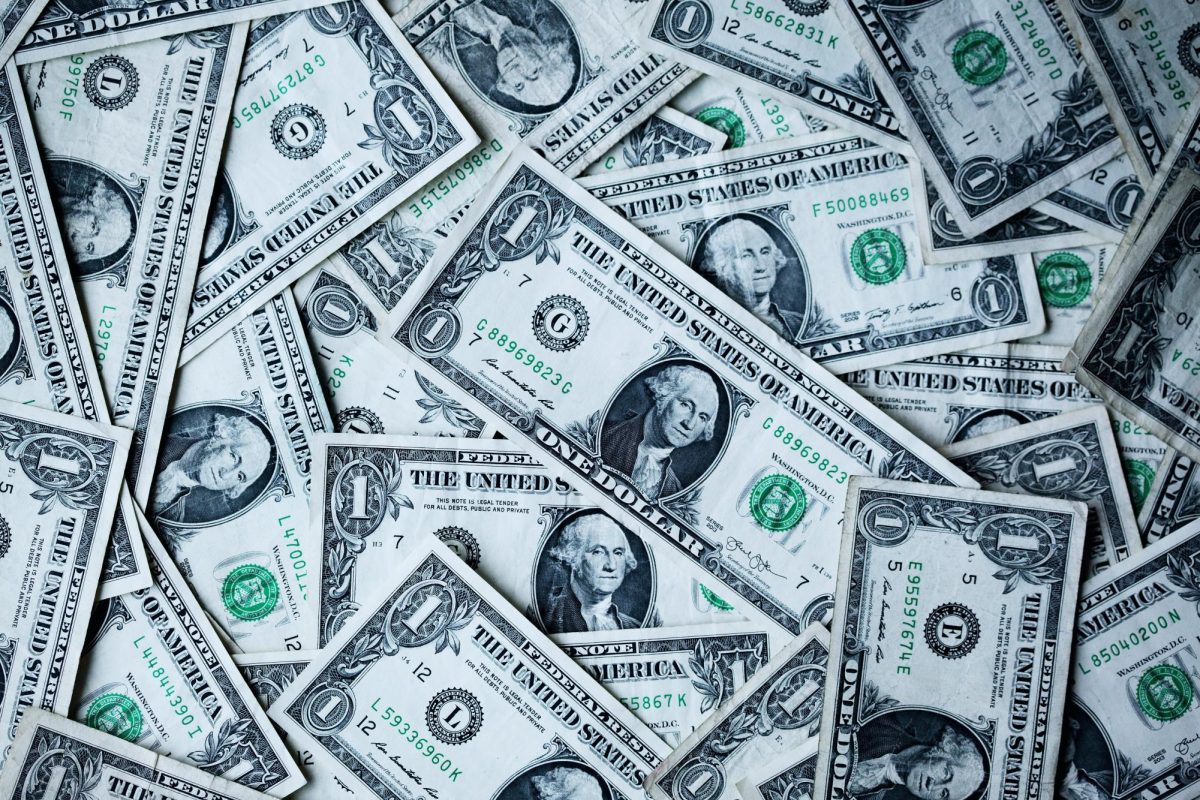Once upon a time, there was a saying that “cash is king.” Yet if there’s one thing we’ve observed over centuries, it’s that a king is bound to be dethroned.
Physical cash was once viewed as an integral part of a country’s identity and a way to conduct everyday business. However, in the age of modern technologies such as Apple Pay, Venmo and other digital payment methods like QR payments, cash is becoming an irrelevant tool in the modern society.
An Axios report detailed that cash payments declined from 25.8 percent of transactions in 2019 to 18.6 percent in 2020. Countries like China have almost completely phased out physical cash and payments are often conducted via mobile phone payments or even more recently with facial recognition payments.
Additionally, an observation I have made in my everyday life is that I cannot remember the last time I used cash or even carried a wallet. I have my credit cards loaded onto my phone and I can utilize QR code payments through Venmo if the need arises.
The move towards a cashless society is simple from a convenience standpoint and is one of the many benefits of transacting without physical cash. It’s an excellent technological advancement in modern society, leaving essentially no reason to carry a wallet anymore, except to store one’s driver’s license.
A report published by the BBC regarding the move towards a cashless society notes that a cashless society would be to the benefit of the economically disadvantaged citizens of a country. Moving to digital payments reduces traditional fees (such as ATM fees) that are often associated with cash payments leaving more money in the pockets of those who earned it.
A criticism often levied at the vision of a cashless society is that the privacy that cash offers would be infringed upon. However, I would counter this with the fact that cash is one of the key elements of perpetration of corruption and other illicit activities. Europol notes in a report, that without cash many criminals would not be able to execute their illicit activities. This privacy that cash affords is often taken advantage of by criminal elements.
The World Economic Forum’s Digital Economy Report noted that cash is an integral part of a criminal enterprise and that the move towards a cashless society would inflict significant damage to the vast networks of criminal enterprises that rely on cash payments.
I’d argue that the opposition to a cashless society can be explained by the adoption curve. The curve notes that early adopters, such as I, are those who see the benefits of the adoption of the new technology and immediately adopt and make use of the new technology. Others, such as the critics of a cashless society, are often associated with the late majority or laggards, who place an emphasis on the drawbacks of a new technology and then only utilize these new advancements once they’re impossible to resist.
As time moves on, and more individuals begin to utilize cashless payment solutions, physical currency will continue to trend downward and the result will be that at some point in the future we will look at physical currency as some antiquated relic, similar to gold coins and cave drawings.
I am an avid adopter of new technology and often value the benefits much more than the drawbacks of such technology. I believe that a cashless society is much more efficient and I look forward to the point in time when we stop using physical currency because of its impractical nature.
Simon Fox can be reached at [email protected]




















Brian Halloran 91 • Nov 20, 2023 at 12:56 pm
Foolishness. CBDCs give the government unprecedented power of its people. Privacy over one’s finances is completely eliminated. The government can and will scrutinize every transaction via CBDCs.
It is well known the China uses social credit scores, combined with CBDCs to crush dissent.
All one need do is look to Canada and how PM Treadeau shit protesting truckers access to their own money to stifle the protests and crush dissent to his Covid policies.
CBDCs are a Trojan Horse that will shift power from the people to the government.